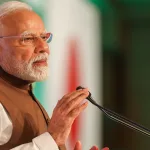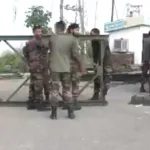WOMEN IN CLIMATE POLICY
Climate change is described as a “threat multiplier”and an “accelerant of instability” that potentially drives socio-economic and political disruptions in fragile contexts. The conflict brought on by climate change intensifies gender-based violence and susceptibility. Reem Alsalem, UN Special Rapporteur on violence against women and girls, recently stated that “Climate change is not only an ecological crisis, but fundamentally a question of justice, prosperity, and gender equality, and intrinsically linked to and influenced by structural inequality and discrimination” According to UN figures, women and girls make up about 80% of those who have been compelled to relocate because of climate change.
Extreme climate change occurrences that endanger the lives and livelihoods of women include floods, infectious diseases, droughts, and water scarcity. Women are more likelyto experience the severe impact of climate change events as they constitute 70% of the 1.3 billion poor population globally. A significant proportion of women belonging to the poor section of our society are heavily dependent on climate-sensitive sectors for their livelihood and subsistence. This is especially true in rural areas where women primarily acquire water, fuel wood, and engage themselves in various agricultural and horticultural activities.
In the wake of the 2004 tsunami, an Oxfam investigation found that men fared in swimming and saving themselves compared to women. Women contributed and divided a significant chunk of their time towards child and family care during evacuations. The gendered differentiation of the severe effects of climate change necessitates placing women within place and context-specific climate policies and actions. As more and more data and studies inform the strong link between gender equality, climate action, and sustainable development. It’s time to gear up the efforts targeted at building the adaptive capacity of women against climate change and their role in building a climate change resilient world.
Gender Parity for effective climate change action
Linking gender, climate change, and social development have historically been difficult for scholars and policymakers. One of the key factors influencing the outcomes of many policy measures aimed at lowering social vulnerability to climate change is gender equality. The Paris Agreement’s Preamble, and Articles 7 and 11, all stress the significance of taking gender equality into account while taking climate action. Gender equality is one of the critical cross-cutting SDG targets in the 2030 Agenda for Sustainable Development. SDG 5 aims to “achieve gender quality and empower all women and girls.”The ecofeminist movement has long backdiscussed the connection between gender inequality and environmental issues. The catalysing role of women in reducing carbon emissions and fostering inclusive development is one of the key takeaways from the ecofeminism movement.
The problem of the climate crisis is reasonably analyzed, and the positioning of women as a solution to the climate crisis is rightly asserted, informed, and actioned by various ecofeminists of the day, including BlackMexican American poet Irene Vázquez, Bahamian poet, essayist, and educator Bernard Ferguson and Indian scientist and activist Vandana Shiva. The proliferation of grass root initiatives on climate action led by women in different parts of the world highlights the need for women focused climate policy.
Mainstreaming Women in Climate Policy
Women are still only allowed to participate in climate solutions on the margins, despite the growing awareness of gender equality. Climate strategies must address more holistic factors connected to the interests of underrepresented groups in addition to economic and technological ones. Women have much-untapped potential as change agents for climate adaptation and mitigation. Women are good sources of information regarding crops, agriculture calendars, food preservation methods, etc. One excellent illustration of this comes from the Kashmir valley, where women themselves toil and guide us about the best crops, sowing techniques, timing, and irrigation methods. They have been utilizing their traditional expertise by transforming seasonal crops like pumpkins and tomatoes into dry ones locally known as ‘Al Hachi’ (Dry Pumpkin) and ‘Rungawan Hachi’ ( Dry Tomato) that last longer and have economic value. With their inherited knowledge, ethos and skills in initiating local-level initiatives and supporting one another to lessen the effects of disasters like floods, old ladies constitute wisdom pools.
In Jammu and Kashmir, women are frequently observed carrying out agricultural or horticultural tasks equally with men; the difficulties presented by climate change echo their worries, notably those of the apple growers. However their local level coping strategies and traditional expertise is rarely discussed. Women have the necessary knowledge about the environment and resource conservation due to their close connection to nature. This knowledge and proximity can be accessed and integrated into the climate information systems necessary for climate adaptation and mitigation. There is growing evidence that highlights a substantial nexus between the participation of women in decision-making for social change and climate action outcomes. For instance, countries with high women representation in parliament are more likely to define protected areas and enact environmental laws and regulations effectively. Countries with higher social and political status for women tend to have smaller carbon footprints.
It’s time to acknowledge that women are not well represented and placed in our efforts to safeguard ourselves against the strange scenarios of climate change. Despite their vulnerability, women should be portrayed as active and successful agents of climate change adaptation and mitigation rather than onlyvictims. Additionally, it is crucial to ensure that funds allocated for adaptation, mitigation, incubation, and capacity building take gender equality into account. When creating funding strategies for climate-smart initiatives and interventions, Government, donors and funding organizations should promote, enable and facilitate the leadership role of women in climate action.
(The author works with the Thomas Schmidheiny Centre for Family Enterprise at the Indian School of Business Hyderabad. Email: [email protected])





